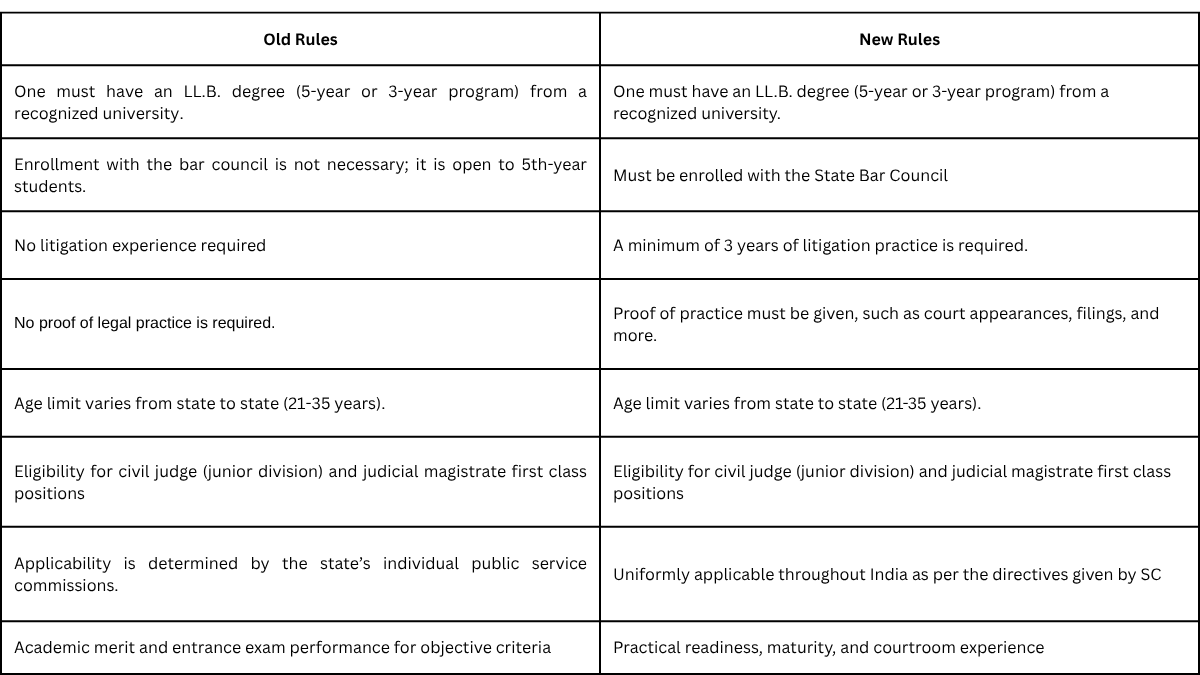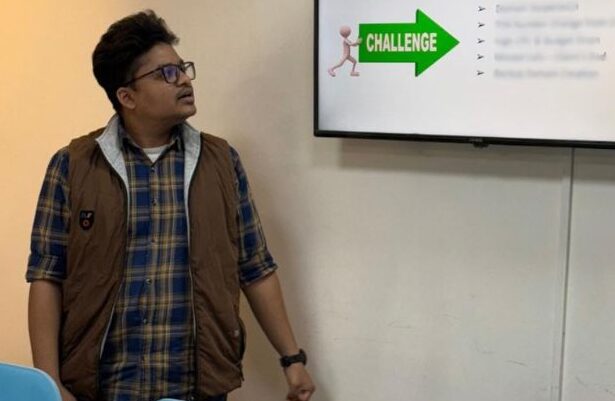The Supreme Court of India’s historical decision-making, which requires a minimum of 3 years of litigation experience to appear for judicial service exams, has evoked a mixed response from young graduates, aspirants, and jurists. The books on the bench will now guide the journey of young law graduates as they head to the courtrooms and litigation. It’s a labyrinth of judicial corridors that the Supreme Court wants judicial aspirants to experience before sitting at the helm of affairs.
Underlining the need for hours, the verdict delivered by the bench of Chief Justice of India BR Gawai, Justice AG Masih, and Justice K Vinod Chandran stated that it should aim to create an ecosystem that provides the judiciary with more seasoned and grounded personnel who are well-versed in the workings of courts.
It was the All India Judges Association that filed a petition in the Supreme Court seeking reform in the recruitment process for entry-level civil judge posts. Delivering judgment in the case, the apex court emphasised the need for more informed and well-versed judiciary personnel to enhance the quality of the judiciary and the justice delivered. AIJA brought to the attention of the apex court the gap between academics and the real-world courtroom, leading inexperienced judges to join the high ranks.
“The appointment of fresh law graduates has led to several difficulties, as noted by multiple high courts. Practical experience in court is essential for ensuring judicial efficiency and competence,” the Chief Justice of India stated while delivering the verdict.
From Books to Benches: Old Criteria Vs New Criteria
 What Advocates And Law Students Say About the New Mandate?
What Advocates And Law Students Say About the New Mandate?
The ruling has certainly prompted a change in the plans of young aspirants who have been preparing for a long time to appear in the judicial exams. There is an ongoing dialogue in the legal community regarding the positive change the SC decision aims to achieve.

Advocate Arunim Kathuria, founder of Shreeji and Associates in Ambala, Haryana, and a seasoned voice in civil and criminal matters, while speaking to The Voices, said that inexperience becomes a hurdle for young judicial officers who have stepped straight from the classroom into the courtroom. This unlikely leap from a classroom to a courtroom, rather than the judicial bench, has caused a detour nobody was ready for. Adding another 3 years of litigation to their plan has earned a reaction from the students, who are now planning their careers with this new SC mandate.

Shivya Sethi, a young law student at Guru Gobind Singh Indraprastha University, Dwarka, is one of them. Pursuing her 4th year, she was preparing for her judiciary exams. The Supreme Court’s decision has resulted in a significant change to her plan. She told The Voices that this updation of the selection procedure for judicial officers was long overdue. “Being a student, it certainly has added to my plan, but I would be a much more confident judge. Courtrooms are a strict and structured environment. The new and inexperienced judge might be overwhelmed, but a seasoned one will be able to serve justice with more confidence,” she says.
Apart from advocates and students, the judiciary exam preparation centres also now face challenges. Changing their age-old pattern of teaching, the new ruling has added a fresh sprout of new hopes for the future. Vivek Chaudhary, a student counsellor at Unique Study Circle, New Delhi, echoed the concerns of students and the way academia has adapted to the new changes to incorporate future judiciary aspirants.

“Being the first responders to the ruling, I think it was important to make students understand that this is not a hurdle but an opportunity to gain real-world knowledge. Undoubtedly, some students were anxious at first, but after explaining to them that this experience would come in handy for them to become better judges and be better equipped to deliver justice, I think most of the students now are looking at it more like an opportunity than a challenge,” said Vivek.
Outlining the Supreme Court’s rationale that “neither knowledge based on law books nor pre-service training could be an adequate substitute for first-hand experience,” this new mandate will act as the quality control mechanism for judicial officers who will make the decisions for the “life, liberty, property, and reputation of litigants.” This will change, producing decision-makers who can positively alter the course of someone’s life.
Copy Editor: Vikash Kumar Upadhyay

